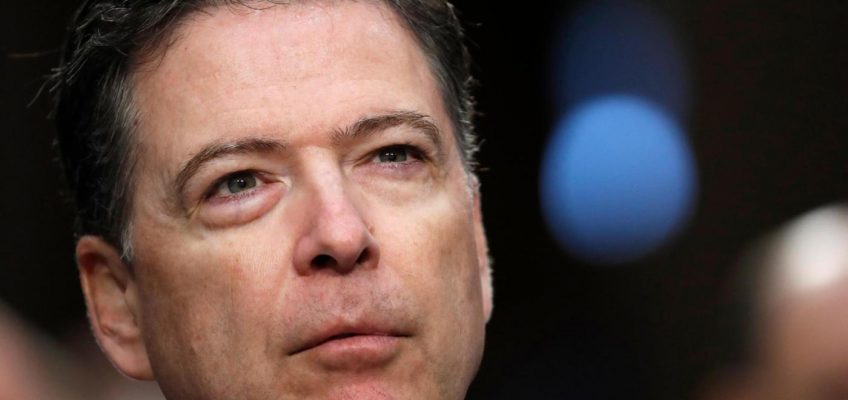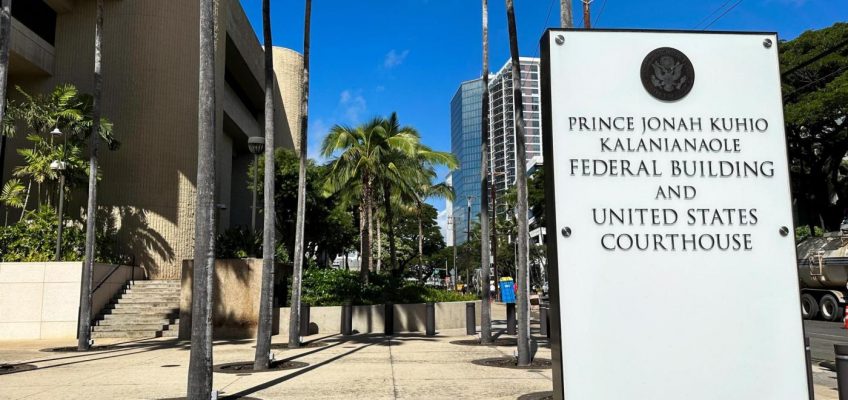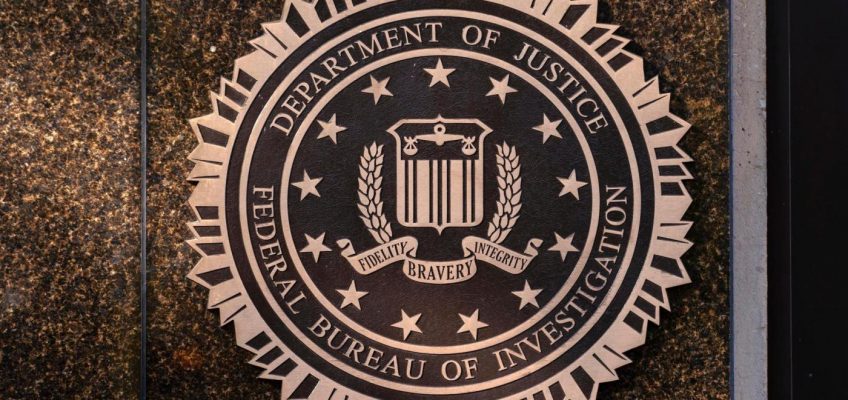By ERIC TUCKER and ALANNA DURKIN RICHER
WASHINGTON (AP) — Lawyers for former FBI Director James Comey want to review a transcript and audio recording of grand jury proceedings in his criminal case, citing what they say were “irregularities” in the process that should result in the dismissal of an indictment pushed by President Donald Trump.
Related Articles
Trump hosts White House Halloween bash with superheroes and presidential lookalikes amid shutdown
Federal judge in Hawaii rules FDA violated the law by restricting access to abortion medication
Justice Department investigating fraud allegations in Black Lives Matter movement, AP sources say
Secret sex video is part of federal conspiracy case against Maryland state senator, indictment says
Hegseth orders the military to detail dozens of attorneys to the Justice Department, AP learns
The request is one in a series of challenges that defense lawyers have waged against a criminal case charging Comey with making a false statement to Congress five years ago.
Defense lawyers last week asked for the case to be thrown out before trial on the grounds that it constituted a vindictive prosecution and because they say the hastily appointed U.S. attorney who filed the indictment was illegally appointed to the job.
Comey’s lawyers leveled new arguments against that prosecutor, Lindsey Halligan, saying in a filing Thursday that her inexperience had tainted the process, created confusion and raised the prospect that legal and factual errors were presented to the grand jury that returned the indictment.
As examples, they cite the fact that the indictment was secured after hours with only 14 grand juror votes and that Halligan erroneously signed two separate indictments — including one containing a charge that the grand jury rejected.
“All available information regarding Ms. Halligan’s first-ever grand jury presentation smacks of irregularity,” Comey’s lawyers wrote. “It is virtually unheard of for a brand-new prosecutor to make her first grand jury presentation alone, without the supervision and guidance of an experienced prosecutor to ensure the absence of factual and legal errors.”
Trump had announced his plan to nominate Halligan as U.S. Attorney for the Eastern District of Virginia just one day after the prosecutor who had held the job, Erik Siebert, resigned under Trump administration pressure. In declaring his support for Halligan, Trump complained in a Truth Social post directed to Attorney General Pam Bondi that “nothing is being done” on investigations into some of his foes and called for action, specifically referencing inquiries into Comey, New York Attorney General Letitia James and Democratic Sen. Adam Schiff of California.
“Although such inexperience alone would not ordinarily satisfy the defense’s burden for unsealing grand jury materials, that inexperience must be viewed alongside Ms. Halligan’s likely motive to obtain an indictment to satisfy the President’s demands, the inaccuracies in the indictment, and the determination of every career prosecutor to consider the case that charges were not warranted,” Comey’s lawyers wrote.
In separate filings Thursday, Comey’s legal team also requested specific details about the conduct at the center of the criminal case, saying the terse indictment is not even clear as to what Comey is alleged to have done wrong. They also asserted that the answers he gave to “fundamentally ambiguous questions” at the Senate hearing at which he is alleged to have lied were “literally true” and that, therefore, the case must be dismissed.
The indictment accuses Comey of having misled the Senate Judiciary Committee on Sept. 30, 2020, in response to questions from Republican Sen. Ted Cruz about whether Comey had authorized a news media leak. But Comey’s lawyers say the indictment misstates his exchange with Cruz, attributing to Comey statements he did not make.
The defense team says the indictment omits context from Cruz’s question that made clear he was asking Comey if he had authorized his deputy director, Andrew McCabe, to serve as an anonymous source to the news media. The lawyers say the indictment misleadingly suggests the questioning from Cruz concerned another person, a Columbia University law professor and Comey friend named Daniel Richman. An earlier FBI investigation into whether Comey had disclosed classified information through Richman concluded there was insufficient evidence to charge either man.
“Senator Cruz’s questions are fundamentally ambiguous because people of ordinary intellect would not be expected to understand that he meant to ask a broad question about Mr. Comey’s interactions with anyone at the FBI — including Daniel Richman — during a colloquy focused on Mr. McCabe,” Comey’s lawyers wrote. “On the contrary, a reasonable person readily would have understood Senator Cruz to be asking only whether Mr. Comey had specifically authorized Mr. McCabe to be an anonymous source in news reports.”




